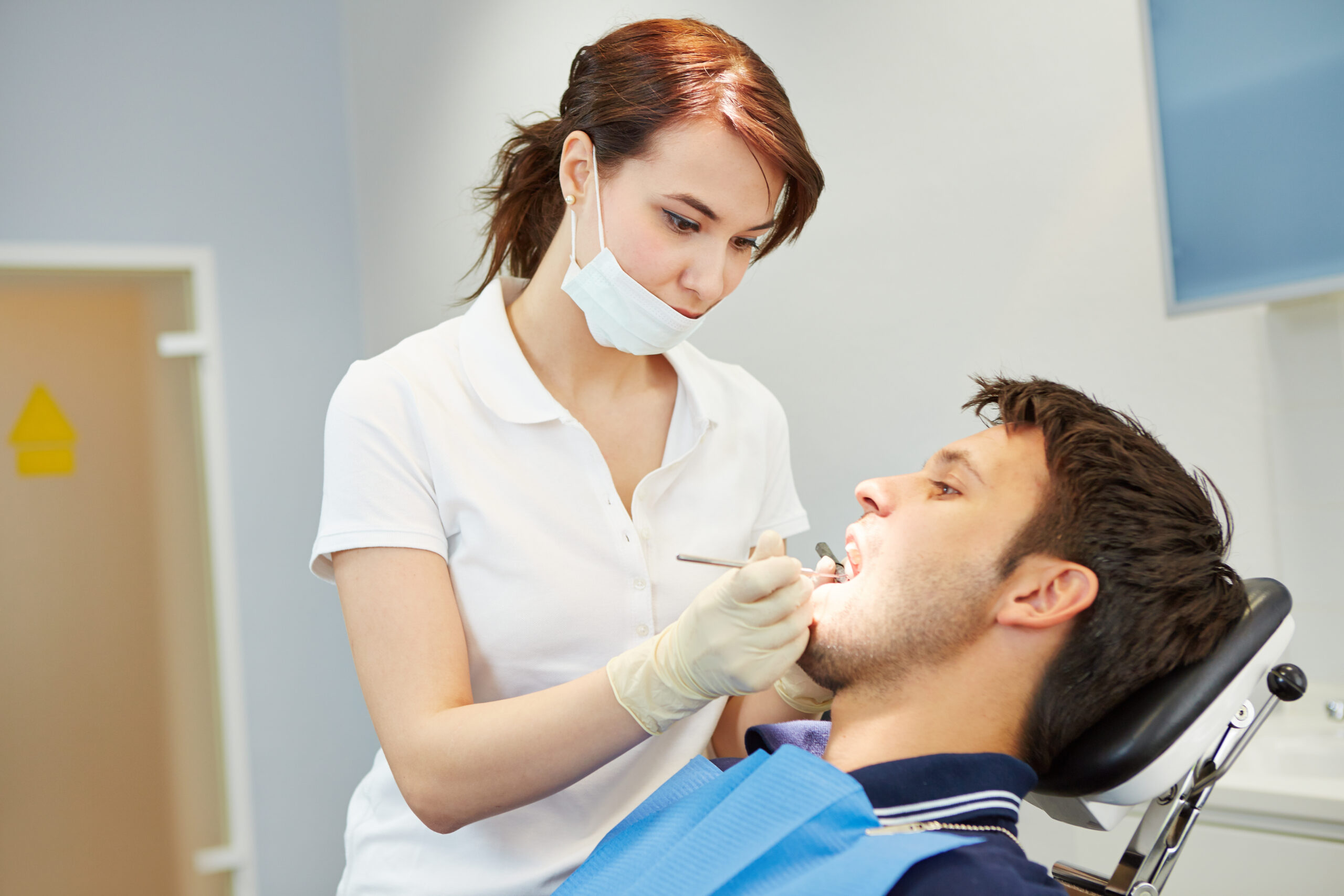
Last month, Tory MP Johnny Mercer found himself “booted out” by the NHS dentist in his Plymouth constituency. He is not alone: over 282,000 people are currently on the waiting list for oral surgery in England alone. 90% of practices in the UK aren’t accepting new patients; in some areas, none are. Patients are pulling their own teeth, crowdfunding for replacement teeth or simply suffering through agonising toothache. Britons have long been stereotyped as having poor dental health, but the crisis engulfing British dentistry is threatening to make that stereotype a reality. How did we end up in this mess?
As with so many crises facing the UK, this one was entirely avoidable, brought about by a combination of austerity, short-term policy choices and misguided long-term reforms – and both major parties share the blame.
The scale of Britain’s dentistry crisis is staggering. Before the pandemic, in 2018-19, NHS dentists performed 39.7m dental “courses of treatment”; by 2021-22, this had fallen to just 26.6m, a decline of 34%. The result has been that the backlog has ballooned: 11 million people are now waiting to see an NHS dentist.
It looks highly unlikely that this massive backlog will be cleared within the next few years, as the vast majority of NHS practices are no longer accepting new patients. This has lengthened waiting lists, causing even more practices to turn people away. The crisis has even extended to private dentists: Bupa, one of the largest providers in the country, recently closed 85 dental practices despite a sizable uptick in the number of patients going private.
The fact that private providers are also cutting back speaks to the primary cause of the crisis: staff shortages.
The most immediate trigger for this is the pandemic. Prior to it, the number of dentists doing NHS work had been slowly trending upward, averaging a 0.5% increase per year. After the pandemic began, and the lockdowns prevented dentist practices from operating (except to perform emergency treatment), the total number of NHS dentists fell by 4% in a single year; in total, the NHS has lost over 1,000 dentists since 2019.
Unlike in other areas of the NHS, the decline in dentist numbers continued even after the lockdowns ended: there are now fewer NHS dentists than at any point in the last decade; by contrast, the total number of NHS nurses has returned to above pre-pandemic levels.
Yet Covid-19 was not the cause of the dentistry crisis – it simply laid bare just how fragile the system was. Even before the pandemic, Britain had a relatively low number of dentists: in 2019, the country had the fewest per 100,000 residents of any G7 country (53), substantially lower than countries like Italy (82) and Germany (86). Britain’s dentistry practices were already having to serve far more patients per dentist than other countries, and Covid-19 stretched them to breaking point.
The real reason for this understaffing, then, was austerity: the government has slashed funding for NHS dental services by 8% in real terms since 2010. In 2013, David Cameron placed a hard cap on the number of trainee dental places his government would fund (the cap was lifted briefly in 2020-21, but was reimposed in 2022 and remains in place despite the current crisis). Yet perhaps the most significant government contribution to the current crisis in British dentistry dates back to 2006, when Tony Blair introduced a new contract between the NHS and its dentists.
Prior to that point, dentists were paid for each piece of work they did. As a result of the 2006 reform, dentists are now paid for a certain number of “units of dental activity”, with little distinction made between complex operations and simple treatments. If they don’t complete nearly all of this work (96%), dentists have to pay back some of their fee. But this is complicated by the fact that the total amount of work they can do is itself capped, meaning that if they do too much work, they have to turn patients away. The result is that many NHS dentists find themselves unable to make a decent living due to the low pay involved in dentistry (45% reported a decline in NHS pay since 2020), not to mention chronically overworked: 87% have felt symptoms of stress and anxiety in the past year.
The 2006 contract has been roundly criticised: the British Dental Association (BDA) has described it as a contract that is “broken” and faulty. Indeed, Rishi Sunak’s government argues that the current contract actually disincentives dentists from carrying out NHS work; indeed, in a BDA survey from May last year, 75% of dentists in England said they were likely to reduce their NHS commitment in the next 12 months, while 45% were planning to go fully private.
Up until the pandemic, recruitment of dentists was rising steadily. The current crisis suggests that this progress was built on sand. Short-term thinking by successive governments of both parties and a focus on cutting costs has left the service hollowed out and vulnerable to unexpected events, such as a pandemic. At the slightest hint of pressure, the fragile edifice crumbled. Rebuilding the dental system with more solid foundations is possible, but will require something highly unlikely: a recognition by our politicians that they have created this crisis, not coronavirus.
Ell Folan is the founder of Stats for Lefties.


